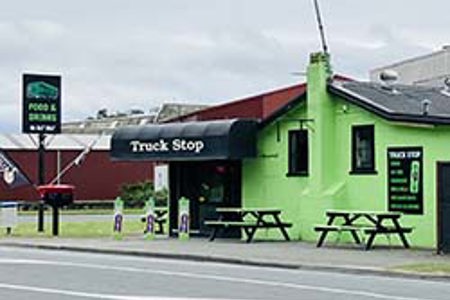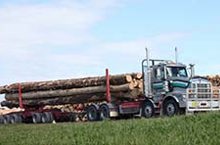
Forestry is at a crossroads in Gisborne as declining contractors, economic challenges and environmental scrutiny threaten the lifeline of this vital industry, says writer, Sophie Rishworth.
Five years ago, there were 22 towers in the region - 70 foot machines that get logs up hills. Today, only eight are left.
Three years ago, there were 118 forestry contractors (who employed teams) working in this region. Today, 36 are left.
The pandemic, followed by extreme weather events has meant the rainy-day money in forestry is gone, companies are losing money to stay in this region and the contractors who are left are living week to week, she says.
Erika Herries and her husband Dan started Lumberjack Logging 12 years ago and employ a crew of 10 men. She’s also an Eastland Wood Council and Women in Forestry board member.
She knows many in our community view forestry companies as the “big, bad” foreign entities.
“But the reality is they employ hundreds of locals. Forestry is a big industry in this region,” she says.
Keeping their contracting company afloat isn’t just important for their family but for the families of the men they employ. She is urging support for the industry in these tough times.
Infometrics’ 2024 Economic Profile for the region shows 18.6% of this region’s employment is made up from jobs in forestry, agriculture and fishing. Across New Zealand, these same three industries make up only 5.4 percent of employment.
Clearly this region relies heavily on primary industries.
The Truck Stop on Awapuni Road is a popular spot to grab something to eat for forestry crews and truck drivers. Owner, Reid Halliwell, says it’s very noticeable when they’re not all going to work: “We’re not getting a lot at the moment – a few truck drivers but nowhere what it used to be to like. We’re doing okay, but we’d be doing quite a bit better if they were around. When forestry is quiet the whole town goes funny.”
Ashley Fisher is an accountant, and the Gisborne Chamber of Commerce President.
“When forestry has a downturn, everyone feels it,” he says, “because we’re heavily invested in it as part of our region. When it’s not thriving – nobody is.”
To read more, get your copy of the June 2025 edition of NZ Logger magazine, on sale from 2 June. Check the link on this page to subscribe to either a printed or digital copy(or both).










